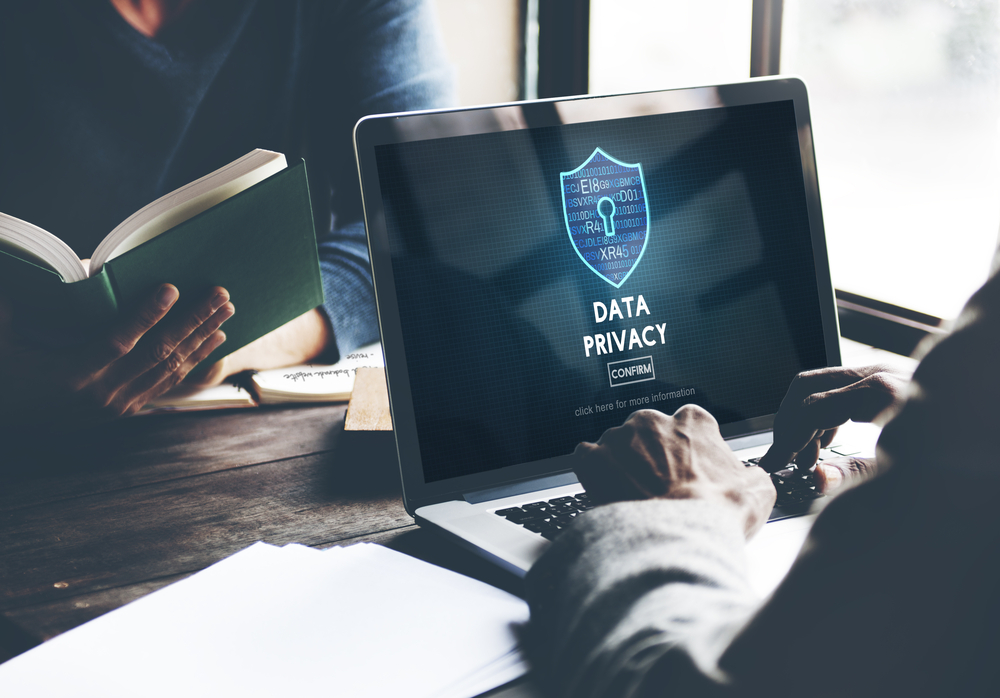Data Privacy Philippines: 5 Best Practices for Your Business

Online transactions are more than just an exchange of money. It’s also a channel for sharing personal information. Without the proper guardrails, sensitive information such as credit card numbers and home addresses becomes exposed to cyber threats. This reality underscores why 76% of Filipinos believe data privacy is a human right.
This has led to the online shopping trend of Filipino consumers considering the security practices of the online retailers they’re buying from.
The growing sentiment about online privacy emphasizes the need for your business to take it just as seriously as your Filipino consumers. Ignoring data privacy guidelines not only exposes customers to hacks and cyber theft but also damages your reputation and trustworthiness.
To implement data privacy methods into your services and processes, you must first grasp the guidelines outlined in the Data Privacy Act of the Philippines.
What is the Data Privacy Act in the Philippines?
The Data Privacy Act of 2012 (DPA), or Republic Act No. 10173, is a law geared towards protecting the privacy rights of users in the Philippines. The law outlines data privacy principles that Philippines-based companies must adhere to, including transparency and proportionality in how they may collect data.
The legal obligation to uphold consumer data privacy has many implications for your business. Since the act holds businesses accountable for protecting the data privacy of their customers, it’s in your best interest to do everything you can to keep your audience’s information safe.
How Does the DPA Affect Businesses?
The DPA is a regulatory law that deals with collecting and processing information by businesses and other entities. Below are a few of the act’s implications.
Establishes compliance requirements
Operating your business without regard for consumer data privacy is illegal. The Data Privacy Act has five pillars of compliance you must always consider when crafting data-driving strategies:
- Appointing a data privacy officer
- Conducting a privacy impact assessment (PIA)
- Creating a privacy management program (PMP)
- Implementing data privacy governance
- Preparing for data breaches
Limits data processing efforts
The type of data you gather and how you process them has also changed because of the act. For instance, section 11 (a) of the act mentions that the data you collect must serve a specific purpose. It goes on to say that excessive information collection is illegal. Hence, it must be clear to you and the customer why you’d want to collect their data.
Encourages tighter data security measures
The law and the growing concern for digital privacy nudges you to rethink your current cybersecurity procedures. For instance, you may need to establish breach reporting protocols in accordance with DPA’s pillars of compliance. That involves creating a dedicated response team, implementing containment procedures, and conducting privacy impact assessments.
Prevents financial and legal complications
Rule XIII states that failure to comply with the act could include a maximum of six years in prison and/or a fine of up to P500,000. Despite penalties depending on the severity and nature of the violation, it still doesn’t discount the larger impact it will have on your brand. Clients may want to move their business to a more trustworthy partner, thereby dipping your revenue.
Improves your customer relationship
Given that more consumers are protective of their data, following data privacy best practices and complying with national regulations on data protection make it easier for buyers to trust you. Your privacy policy and openness can legitimize your business, earning trust and building your relationship much easier.
5 Best Practices for Data Privacy Compliance
Complying with data privacy regulations in the Philippines isn’t only a matter of protecting customer data. It can enhance customer relationships and promote a culture that respects consumer privacy.
Below are a few data privacy best practices to comply with the Philippine data privacy regulations.
1. Craft a clear privacy policy
Develop a transparent and comprehensive privacy policy in the Philippines that communicates how customer information is collected and the intended use. An effective policy will require collaboration from your information technology (IT), legal, and data privacy officers.
2. Conduct training and awareness programs for employees
Complying with the DPA’s regulations is an uphill battle when employees don’t understand why data privacy is important or how it impacts your business. Data privacy awareness programs, workshops, and seminars are excellent ways to brief employees about the subject and align your team.
Data privacy and cybersecurity are broad, providing you with multiple options of topics to tackle. For instance, suppose you offer financial services. In this case, you can invite an expert to discuss know-your-customer (KYC) protocols.
These programs can also serve as upskilling opportunities for your workforce interested in cybersecurity, keeping them engaged and reducing employee attrition rates.
3. Enhance data encryption and security measures
Chapter VII, Sec. 23, (3) of the DPA states that the technology you use to access off-site data shall use a high level of encryption. It directly impacts your data management procedures if you’re using a customer insight platform.
There are two types of encryption you can consider to enhance your cybersecurity.
Symmetric encryption involves using one key to encrypt and decrypt data. It’s a straightforward method you can consider if you’re a relatively smaller team. However, asymmetric encryption takes your security up a notch by requiring a public key to encrypt data and a private key to decrypt it.
It’s best to work with your IT and legal team to decide which type is best for you.
4. Asses your data privacy risk regularly
The National Privacy Commission outlines how you can conduct a privacy impact assessment (PIA) to help you understand your current level of protection. In a nutshell, you must work with stakeholders to uncover how a process, information system, or any other personal information processing initiative can impact user privacy.
5. Find the right data protection officer
Privacy policy laws in the Philippines require you to appoint a data protection officer (DPO). This person will oversee your data collection and processing, ensuring they follow the act’s guidelines and protect it well.
The right DPO must at least be an expert in privacy and data protection policies relevant to your industry and business’s operations. Their expertise lets them make knowledgeable decisions to guide your team on the most secure customer data path while balancing business goals.
Balance Data Protection and Personalized Marketing Efforts
Complying with data privacy laws has a ripple effect on your organizational operations. Publishing a clear privacy policy and promoting your encryption efforts helps cultivate your customer relationships, which generates customer loyalty and increases revenue.
Internally, upholding DPA standards means setting aside a budget to hire a data protection officer and conduct data privacy awareness programs. These efforts aim to educate your team and help you make customer-centric decisions.
However, you may still face a dilemma on how they can protect consumer data privacy while providing highly personalized and targeted marketing. It requires leveraging data legally and ethically.
Inquiro provides quick access to actionable customer insights from your data through our suite of solutions, from a 360º Customer Dashboard to Scoring APIs to measure customer trustworthiness.
Contact us now to begin building a secure and consistent customer experience.



